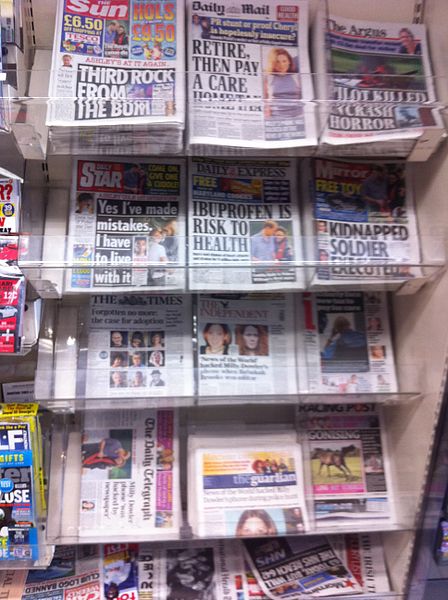Tabloid journalism is a popular style of largely sensationalist journalism which takes its name from the tabloid newspaper format: a small-sized newspaper also known as half broadsheet. The size became associated with sensationalism, and tabloid journalism replaced the earlier label of yellow journalism and scandal sheets. Not all newspapers associated with tabloid journalism are tabloid size, and not all tabloid-size newspapers engage in tabloid journalism; in particular, since around the year 2000 many broadsheet newspapers converted to the more compact tabloid format.
Display rack of British newspapers during the midst of the News International phone hacking scandal (5 July 2011). Many of the newspapers in the rack are tabloids.
In journalism and mass media, sensationalism is a type of editorial tactic. Events and topics in news stories are selected and worded to excite the greatest number of readers and viewers. This style of news reporting encourages biased or emotionally loaded impressions of events rather than neutrality, and may cause a manipulation to the truth of a story. Sensationalism may rely on reports about generally insignificant matters and portray them as a major influence on society, or biased presentations of newsworthy topics, in a trivial, or tabloid manner, contrary to general assumptions of professional journalistic standards.
American cartoon published in 1898, Remember the Maine! And Don't Forget the Starving Cubans! Such sensationalist cartoons were used to support American intervention in the Cuban War of Independence.


